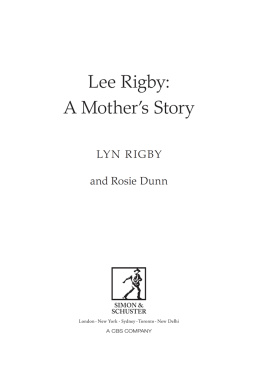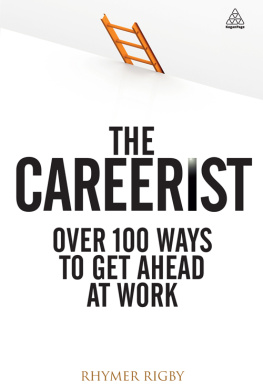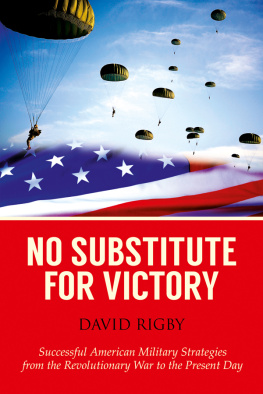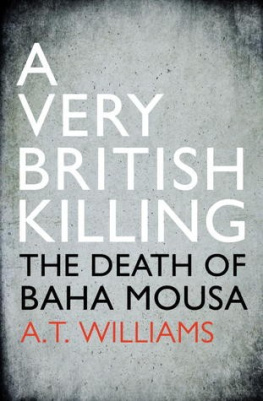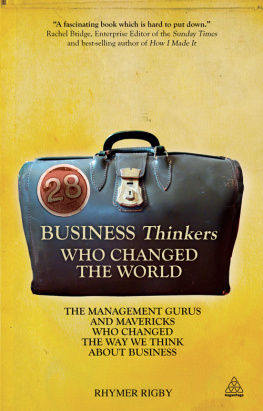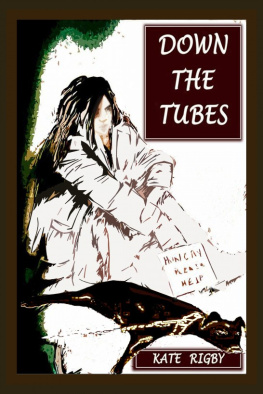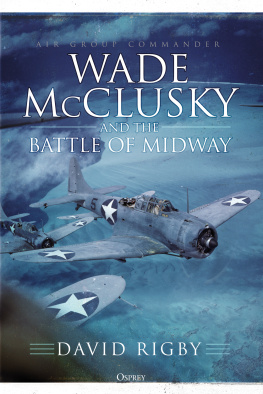Lee Rigby:
A Mothers Story

First published in Great Britain by Simon & Schuster UK Ltd, 2016
A CBS COMPANY
Copyright 2016 by Lyn Rigby and Rosie Dunn
This book is copyright under the Berne Convention.
No reproduction without permission.
All rights reserved.
The right of Lyn Rigby and Rosie Dunn to be identified as the authors of this work has been asserted in accordance with sections 77 and 78 of the Copyright, Designs and Patents Act, 1988.
Simon & Schuster UK Ltd
1st Floor
222 Grays Inn Road
London WC1X 8HB
www.simonandschuster.co.uk
Simon & Schuster Australia, Sydney
Simon & Schuster India, New Delhi
The authors and publishers have made all reasonable efforts to contact copyright-holders for permission, and apologise for any omissions or errors in the form of credits given. Corrections may be made to future printings.
A CIP catalogue record for this book is available from the British Library
Hardback ISBN: 978-1-4711-4947-4
Trade paperback ISBN: 978-1-4711-5903-9
Ebook ISBN: 978-1-4711-4948-1
Typeset in the UK by M Rules
Printed in the UK by CPI Group (UK) Ltd, Croydon, CR0 4YY

Simon & Schuster UK Ltd are committed to sourcing paper that is made from wood grown in sustainable forests and support the Forest Stewardship Council, the leading international forest certification organisation. Our books displaying the FSC logo are printed on FSC certified paper.
A Promise To My Son
I will talk about and share my Son,
To honour my boy and his memory,
Deny me that, and you deny my sons life,
Deny my sons life and you have no place in mine.
When I grow up, Mummy, I want to be a soldier.
Lee Rigby, aged five
Prologue
I m lying on the kitchen floor, curled up in a foetal-shaped ball, and I have no idea how I got here.
The tiles against my side are hard and freezing cold and my eyes scan the room, seeking clues to my brutal plight. Everything appears to be in slow motion, my brain included, and the world sounds muffled and confused, as if Ive been caught in some apocalyptic blast that has knocked me to the ground.
Like a wounded wild animal I lie motionless, as screams and wails continue all around me. My body is wracked with sobs and convulsions of pain as I try and make sense of everything. Every part of my body hurts. I can hear a terrible noise somewhere in my head but it feels somehow disconnected to me.
Then I realise this is the sound of my grief. My grief for my murdered son, Fusilier Lee Rigby. This is his story.
1
The Day Everything Changed
I knew it was my Lee straight away.
From the moment I saw the blurred outline of a dead body flashing before me on a TV screen, I recognised him as my son. I cant say it was one particular thing that gave it away; the video footage on the news was grainy and unclear, and the body on the ground had been blurred to disguise identity and injuries. But just seeing the outline of the young man was enough to tell me it was Lee. I knew the shape of his body and, in a heartbeat, I recognised the dark HELP for HEROES sweatshirt he was wearing and his favourite Timberland boots.
From that moment on my life would never be the same again. It must have been around teatime, about 5.20 p.m., when I first saw the news on the television, but by then Lee had been dead for several hours and I didnt even know it. The terror had begun to unfold at about 2 p.m. on 22 May 2013. My life had carried on as normal for a whole afternoon and I had no inkling that my beloved boy was gone forever.
Lee was a soldier serving in the 2nd Battalion, Royal Regiment of Fusiliers, and he had been with the regiment for seven years as a machine-gunner and drummer. He had already been to Afghanistan and served on the frontline but, mercifully, hed survived and returned home safely, unlike several of his friends and comrades.
The day started without incident. It was a lovely spring afternoon and I, like most people, was enjoying the weather and looking forward to summer. I was at home in Middleton, a large suburb of Manchester, where I was running my normal daily chores for the family before getting ready to go to work early evening.
I was over two hundred miles away when Lee was attacked and killed, and it still breaks me to think I was oblivious to his pain for so long afterwards. Lee was stationed at the Royal Artillery Barracks in Woolwich, but he used to travel to work each day to the Tower of London, where he was part of a recruitment team as well as a drummer in the Fusilier Corps band. This meant he often performed with the drummers at ceremonial and recruitment events. It was part of the job he really loved. Lee was an outgoing lad and, as the Drum Corps was very social, he fitted in straight away.
The night before his murder he had worked at a recruitment and hospitality event at the Tower and, as often, the lads were in high spirits afterwards. When everything had been packed away they decided to go for drinks to wind down and enjoy themselves. A night in the pub with Army lads is not for the faint-hearted and so, when one pint turned into many, Lee and his mates ended up having a late night on the tiles.
Lee didnt arrive back at his barracks until almost 4 a.m. after a mammoth session with the boys. But despite the crazy antics of the night before, he was up and out the door a few hours later to ensure he arrived back at work at the Tower on time for 8 a.m. Many of the lads were late in that day, and arrived a couple of hours after Lee but, as it had been a successful night for the regiment, they werent treated too harshly.
As the day wore on, the partying of the night before began to creep up on him and he looked and felt washed out. His boss took pity on him and, because he had turned up on time, he let Lee go home early sometime after midday to catch up on his sleep and recover. Its details like this that make you think fate is a very cruel mistress. Lee would normally finish work at 4 p.m. and then travel across the city back to his Woolwich barracks, arriving there about 6 p.m. It was the one day he finished early that led to him crossing the path of his monstrous killers.
Shortly after 2 p.m., Lee jumped off the train at Woolwich Arsenal Station. He was seen clearly on CCTV footage, making his way home. Lees attackers struck as he walked down Wellington Street, near Wilson Street, just a few hundred yards from the safety of his barracks.
He was crossing the road to get to a shop when two men, Michael Adebolajo and Michael Adebowale, drove towards him in a car, knocking him over and smashing him into a post. As my son lay on the ground, they jumped from their car and began hacking at him with kitchen knives and meat cleavers. They tried to behead him, savagely cutting his head from his shoulders. They then pushed his body into the middle of the road, where he lay unconscious and dying. It was brutal, and their barbaric act took place in broad daylight.
What happened next was extraordinary. Instead of running away to avoid capture, the two men, covered in blood and still clutching their weapons, stayed put and began mingling among the growing and horrified crowd. The attack had been witnessed by a lot of people who had been going about their daily business on a busy London street.
Several women stood out that day for their immense courage and bravery and their first-hand accounts will be included later in the book. One woman tried desperately to rescue and prevent Lee from being run over, while another lay on the ground and cradled my boy in his final moments.
Next page
